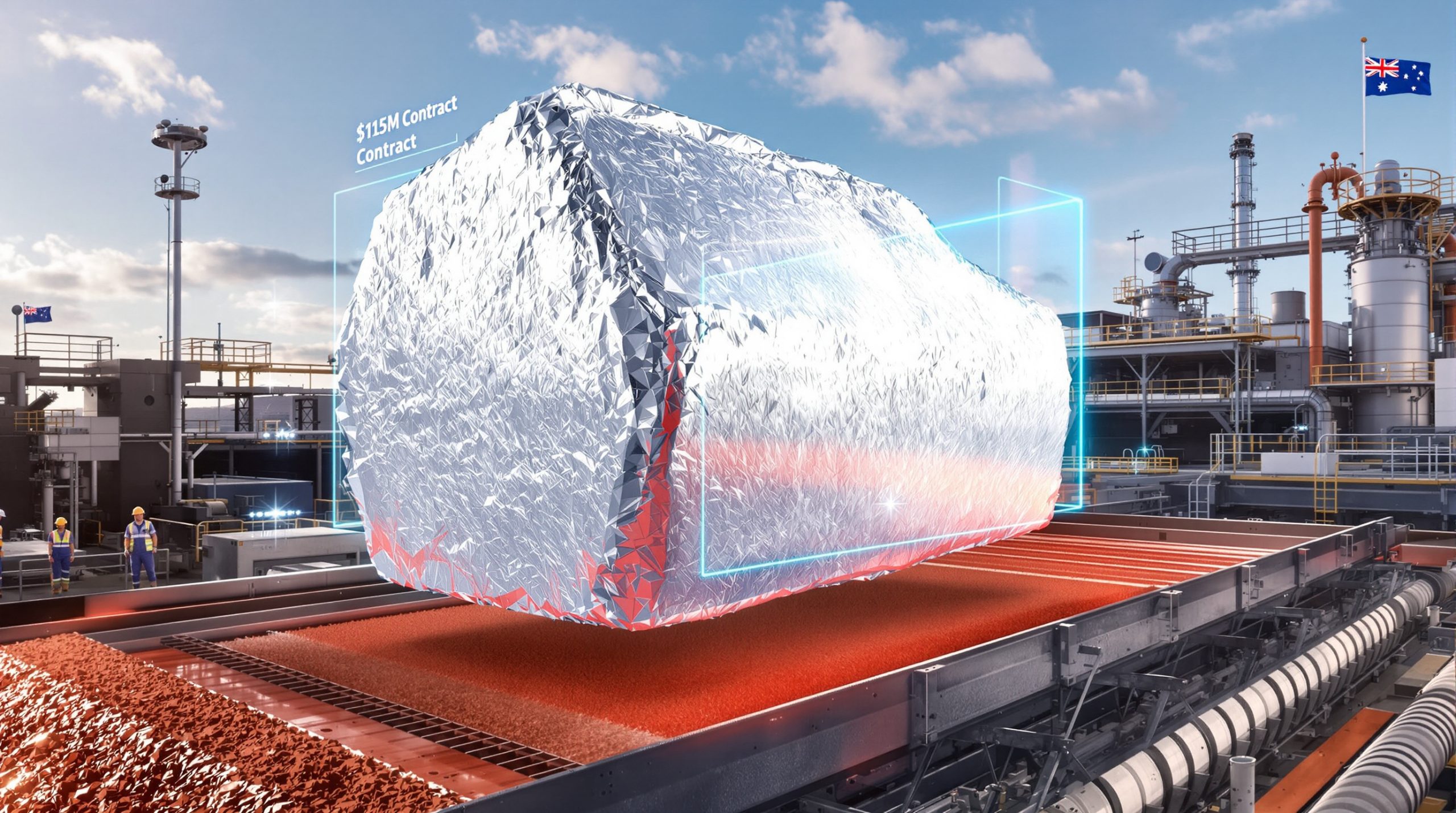Why Is Boron Carbide Production Critical for National Security?
Boron carbide, often referred to as "black diamond" due to its exceptional hardness, has become a strategic focal point in national security discussions. As the third hardest material known to science—surpassed only by diamond and cubic boron nitride—this ceramic compound plays a crucial role in military applications, particularly advanced ballistic armor systems that protect personnel and vehicles in combat situations.
The exceptional combination of extreme hardness, low weight, and high-temperature stability makes boron carbide uniquely valuable for defense applications where performance requirements cannot be compromised. Its ability to stop high-velocity projectiles while maintaining relatively low weight has made it indispensable for modern military equipment.
The Strategic Vulnerability in Current Supply Chains
The current global supply chain for boron carbide presents alarming security concerns that defense experts have been monitoring with increasing apprehension:
- Approximately 85% of global boron carbide production currently occurs in China
- The typical supply chain follows a concerning pattern:
- Turkey extracts and processes raw boron materials
- These materials are shipped to China for conversion to boron carbide
- Finished products (including military-grade armor) are then purchased by the U.S.
This arrangement creates an obvious strategic vulnerability where materials critical to national defense depend on potentially unreliable foreign supply chains. Military planners consider this a significant risk factor during potential conflicts or periods of geopolitical tension.
The Pentagon has identified this dependence as a priority concern in its defence critical materials strategy, noting that any disruption—whether from geopolitical tensions, trade disputes, or supply chain issues—could severely impact military readiness and equipment procurement timelines.
How Does Boron Carbide Manufacturing Work?
Traditional boron carbide production methods are highly energy-intensive and require specialized equipment, contributing to the challenges of domestic manufacturing. Understanding these processes is essential to appreciating both the difficulties and opportunities in reshoring production.
Traditional Production Methods
The conventional manufacturing process for boron carbide involves several energy-intensive steps that require specialized facilities:
| Production Method | Temperature | Energy Requirements | Yield Efficiency |
|---|---|---|---|
| Carbothermal Reduction | ~2400°C | Very High | Moderate |
| Magnesiothermic Reduction | 1000-1200°C | High | Variable |
| Chemical Vapor Deposition | 1400-1600°C | High | High but costly |
The carbothermal reduction process—mixing boron oxide (B₂O₃) with carbon and heating to extreme temperatures in an arc furnace—remains the most common industrial approach. This process requires significant electrical power, specialized furnaces capable of reaching extraordinarily high temperatures, and precise control systems.
The extreme temperature requirements of traditional methods explain why production has concentrated in regions with access to low-cost electricity, contributing to the current geographic concentration of manufacturing capabilities.
Innovative Aqueous Chemical Processes
Recent technological advancements have introduced more efficient production methods that could transform the industry:
- Water-based chemical processes that operate at substantially lower temperatures
- Reduced energy consumption compared to traditional methods (up to 60% lower by some estimates)
- Ability to use domestic boric acid as direct feedstock
- Elimination of multiple international shipping stages
These innovations represent a significant opportunity for reshoring production capacity. By using chemical reactions rather than brute-force heating, these processes can achieve similar results with lower energy inputs and potentially higher quality control.
The development of these aqueous processes has been accelerated by concerns about supply chain security, with several companies receiving government support to scale up production using these more efficient methods.
What Are the Applications Driving Demand for Domestic Production?
The growing recognition of boron carbide's strategic importance stems from its increasingly diverse applications across both defense and civilian sectors, creating robust demand that justifies investment in domestic production capabilities.
Military and Defense Applications
Boron carbide's exceptional properties make it invaluable for several critical defense applications:
- Body armor plates and inserts (providing superior ballistic protection at lighter weight)
- Vehicle armor systems for military transport and combat vehicles
- Nuclear applications due to neutron absorption capabilities
- Specialized cutting tools and abrasives for defense manufacturing
Military body armor using boron carbide can be up to 30% lighter than steel-based alternatives while providing superior protection against high-velocity projectiles, directly improving soldier mobility and reducing fatigue in combat situations.
The material's neutron-absorbing properties also make it valuable in nuclear applications, including submarine reactors and portable nuclear detection equipment, further expanding its strategic importance beyond traditional armor systems.
Expanding Industrial Applications
Beyond defense, domestic boron carbide production supports numerous civilian industries that benefit from its unique properties:
- High-performance cutting tools and abrasives for precision manufacturing
- Nuclear reactor control rods and shielding materials
- Specialized electronics and semiconductor manufacturing components
- High-temperature resistant components for aerospace applications
The growing semiconductor industry in particular has identified boron carbide as an important material for next-generation manufacturing processes, adding commercial pressure to develop secure supply chains independent of geopolitical uncertainties.
How Is the U.S. Addressing the Boron Carbide Supply Chain Gap?
Recognizing the strategic vulnerability, various government and private sector initiatives are underway to rebuild domestic production capabilities through targeted investments, partnerships, and long-term procurement strategies.
Department of Defense Initiatives
The Pentagon has recognized the strategic importance of securing domestic boron carbide production:
- Allocation of significant funding for domestic manufacturing initiatives through defense appropriations
- Partnership programs with private sector companies developing innovative production methods
- Research grants for more efficient, environmentally sustainable production technologies
- Long-term procurement commitments to ensure market stability for new producers
These initiatives reflect a whole-of-government approach to critical materials security, with coordination between defense planners, material scientists, and industrial policy experts to identify and address vulnerabilities in the supply chain.
The Defense Production Act has been utilized to prioritize development of domestic production capabilities for strategic materials like boron carbide, providing both funding and regulatory support for companies investing in this sector.
Public-Private Partnership Models
Successful reshoring efforts are emerging through collaborative approaches that leverage the strengths of both government and private industry:
- Technology companies developing proprietary aqueous chemical processes
- Domestic mining operations providing reliable boric acid feedstock
- Manufacturing facilities establishing complete production capabilities within U.S. borders
- Integration with downstream armor and component manufacturers
One notable example involves an American company that received substantial Department of Defense funding to develop domestic boron carbide production capabilities using innovative chemical processes that can utilize American-sourced boric acid, creating a fully domestic supply chain from raw material to finished product.
These partnerships often include knowledge sharing arrangements, workforce development programs, and coordinated investment plans to ensure that the entire supply chain—from raw material extraction to finished product manufacturing—can be secured domestically.
What Are the Economic Benefits of Domestic Boron Carbide Production?
The economic case for domestic boron carbide production extends beyond national security considerations to include substantial job creation, industrial capacity development, and long-term economic resilience benefits.
Job Creation and Economic Impact
Reshoring boron carbide production generates significant economic advantages that benefit both specialized technical workers and broader manufacturing communities:
- Creation of high-skilled manufacturing positions with above-average wages
- Development of advanced materials science expertise that transfers to other industries
- Establishment of specialized production facilities in regions seeking industrial development
- Growth in supporting industries and supply chains creating additional employment opportunities
Economic analysts estimate that each direct job in advanced materials manufacturing typically supports 2-3 additional jobs in related industries, creating a multiplier effect that benefits regional economies around production facilities.
The development of technical expertise in these advanced manufacturing processes also creates intellectual capital that strengthens America's overall industrial competitiveness beyond the specific material being produced.
Cost-Benefit Analysis of Domestic Production
While initial capital investments are substantial, the long-term economic case is compelling when all factors are considered:
| Factor | Offshore Production | Domestic Production |
|---|---|---|
| Initial Capital Investment | Lower | Higher |
| Operational Costs | Variable (energy costs differ by region) | Moderate to high |
| Supply Chain Security | High risk | Low risk |
| Transportation Costs | High (multiple international shipments) | Low |
| Response Time to Demand Changes | Weeks to months | Days to weeks |
| Intellectual Property Protection | Limited | Strong |
| Environmental Compliance Costs | Typically lower | Higher |
The premium paid for domestic production is increasingly viewed as justified given both the strategic importance of the material and the total lifecycle costs when transportation, quality control, and supply chain risks are properly accounted for.
When factoring in the reduced transportation costs and elimination of tariffs, customs delays, and international shipping risks, the true cost difference between domestic and offshore production narrows considerably, particularly for high-value applications where reliability and quality control are paramount.
What Raw Material Resources Support Domestic Production?
America's considerable boron resources provide a solid foundation for developing a domestic boron carbide industry, with established mining operations and substantial proven reserves available to support manufacturing scale-up.
U.S. Boron Reserves and Production
The United States possesses significant boron resources to support domestic boron carbide manufacturing:
- Major borate deposits in California's Mojave Desert represent world-class resources
- U.S. currently produces approximately 20% of global boron supply
- Established mining operations with decades of proven reserves
- Potential for expansion with new mining projects under development
These existing boron mining operations provide a stable platform for developing downstream processing and manufacturing capabilities, with well-established transportation infrastructure and processing facilities already in place.
Geological surveys indicate that known U.S. boron reserves could support domestic manufacturing needs for many decades at current consumption rates, providing long-term resource security for strategic applications.
Diversifying Domestic Supply Sources
Efforts to expand domestic boron production include:
- Development of new mining operations in western states with identified boron deposits
- Exploration of alternative extraction technologies for lower-grade deposits previously considered uneconomical
- Recovery of boron from industrial waste streams and recycling programs
- Research into sustainable boron extraction methods with reduced environmental impact
These diversification efforts aim to create redundant supply options that eliminate single points of failure in the supply chain, ensuring that domestic manufacturing can continue even if individual mines or processing facilities experience disruptions.
The development of improved extraction technologies is particularly important for accessing deposits that were previously considered uneconomical under traditional mining methods, potentially expanding the effective resource base considerably.
How Do Technical Innovations Support Reshoring Efforts?
Technological advancements across production, testing, and manufacturing processes are making domestic production increasingly competitive while simultaneously improving material performance and reliability.
Advanced Manufacturing Technologies
Technical innovations are transforming production possibilities and economics:
- Computer-controlled precision manufacturing systems reducing labor costs
- Advanced sintering and forming techniques for complex shapes with minimal waste
- Reduced energy requirements through process optimization and heat recovery systems
- Automation reducing labor costs and improving consistency of final products
These technologies allow modern facilities to achieve higher quality standards with lower labor inputs than traditional manufacturing methods, helping to offset higher domestic labor costs through improved productivity and reduced material waste.
The development of continuous processing methods, rather than batch production, has also improved throughput rates and energy efficiency, further enhancing the economic viability of domestic production.
Quality Control and Performance Standards
Domestic production offers advantages in maintaining rigorous quality standards essential for critical applications:
- Advanced testing protocols ensuring ballistic performance meets or exceeds military specifications
- Consistent material properties critical for defense applications where failure is not an option
- Traceability throughout the production process from raw materials to finished products
- Reduced risk of counterfeit or substandard materials entering the supply chain
These quality advantages are particularly significant for defense applications, where performance variability can have life-or-death consequences and where verification of material properties is essential for system certification.
Military procurement specialists have noted that domestically produced materials typically demonstrate more consistent properties and lower rejection rates during qualification testing, reducing both costs and program risks for defense systems.
What Challenges Must Be Overcome for Successful Reshoring?
Despite the strategic importance and technical progress, several significant challenges must be addressed to make domestic boron carbide production sustainable and competitive in global markets.
Technical and Economic Hurdles
Several challenges must be addressed for successful domestic production:
- High initial capital investment requirements for specialized equipment
- Energy-intensive production processes in a high-energy-cost environment
- Technical expertise and workforce development needs for specialized processes
- Competition with established international producers with lower operating costs
These challenges require coordinated approaches that combine technical innovation, workforce development, and strategic investments to overcome. The high capital costs in particular represent a significant barrier to entry for new market participants.
Industry analysts note that achieving scale economies is particularly challenging for specialized materials like boron carbide, where total market volume is relatively small compared to bulk industrial materials, making it difficult to amortize capital investments over large production volumes.
Regulatory and Environmental Considerations
Domestic production must navigate various regulatory frameworks that international competitors may not face:
- Environmental permitting for manufacturing facilities using hazardous materials
- Workplace safety standards for high-temperature processes and chemical handling
- Waste management and recycling requirements adding operational complexity
- Carbon emissions considerations for energy-intensive processes in a carbon-conscious regulatory environment
While these regulatory requirements serve important public interests, they can create cost disadvantages compared to international competitors operating in less stringent regulatory environments, requiring innovative approaches to maintain competitiveness while meeting environmental standards.
Developing processes that reduce energy intensity and minimize environmental impacts is therefore not just environmentally responsible but economically necessary for sustainable domestic production.
How Does Domestic Boron Carbide Production Fit Into Broader Supply Chain Security?
The efforts to reshore boron carbide production represent one element of a comprehensive approach to securing America's critical materials supply chains across multiple strategic sectors.
Integration with National Security Strategy
Boron carbide represents one component of a broader approach to critical materials security:
- Alignment with Critical Minerals and Materials lists maintained by federal agencies
- Coordination with other strategic material initiatives in rare earths, semiconductor materials, and energy storage
- Integration with defense industrial base planning to identify and address vulnerabilities
- Support for research and development across related materials to reduce dependence on single materials
This integrated approach recognizes that supply chain security requires addressing vulnerabilities across multiple materials simultaneously, as defense systems typically depend on diverse material inputs that must all be secured.
The National Defense Stockpile program has been revitalized in recent years to include materials like boron carbide that were previously not considered for strategic reserves but are now recognized as critical to national security.
Case Study: Complete Domestic Supply Chain Development
A model for successful reshoring includes:
- Domestic mining operations extracting boron-containing minerals from American deposits
- Processing facilities converting raw materials to boric acid meeting manufacturing specifications
- Chemical conversion to boron carbide using innovative processes developed with government support
- Manufacturing of finished components for defense applications to exact specifications
- Integration with military equipment production and certification processes
This end-to-end approach eliminates foreign dependencies at every stage, creating a resilient supply chain that can operate independently of international disruptions during crises.
The success of this model requires coordination between multiple companies and government agencies, with long-term commitments from both sides to justify the substantial investments required at each stage of the supply chain.
What Does the Future Hold for U.S. Boron Carbide Production?
Looking forward, boron carbide's applications continue to expand beyond traditional uses, creating growing markets that can support domestic production scale-up while advancing American technological leadership.
Emerging Technologies and Applications
The future of boron carbide extends beyond traditional applications into emerging high-technology fields:
- Advanced composite materials incorporating boron carbide for aerospace and space exploration
- Specialized coatings for extreme environment applications in energy production
- Next-generation lightweight armor systems with enhanced protection-to-weight ratios
- Integrated sensor and armor systems for advanced military platforms
These emerging applications expand the potential market for domestic producers while creating opportunities to develop intellectual property and expertise that strengthens America's technological leadership in advanced materials.
Research into boron carbide-based semiconductor devices for extreme environments represents a particularly promising frontier, with potential applications in deep space exploration, nuclear facilities, and other settings where conventional electronics cannot survive.
Long-Term Production Capacity Goals
Strategic planning for domestic production includes:
- Achieving self-sufficiency for defense requirements by 2030
- Developing export capacity for allied nations seeking secure supply chains
- Creating redundant production capabilities to eliminate single points of failure
- Establishing innovation centers for ongoing research and development
These goals reflect recognition that sustained investment and long-term planning are necessary to rebuild domestic production capacity that has eroded over decades of globalization and offshore manufacturing.
Industry and government leaders acknowledge that building domestic capacity requires not just initial investments but sustained commitment to procurement practices that value supply chain security alongside cost considerations.
FAQ: Domestic Boron Carbide Production
What makes boron carbide so valuable for military applications?
Boron carbide offers an exceptional combination of extreme hardness (9.5+ on the Mohs scale), low density (2.52 g/cm³), and high-temperature stability. This allows for lightweight armor systems that provide superior protection against ballistic threats while reducing the weight burden on personnel and vehicles. Military testing has demonstrated that properly engineered boron carbide armor can stop armor-piercing rounds that would penetrate steel plates of similar weight.
How does domestic production improve national security?
Domestic production eliminates dependence on potentially unreliable foreign suppliers, reduces vulnerability to supply chain disruptions during conflicts, ensures quality control to military specifications, and protects sensitive technical information about defense applications. Having complete control over the supply chain also allows for faster response to urgent requirements during crisis situations when international shipping and customs clearances might cause critical delays.
What are the environmental considerations for boron carbide production?
Traditional production methods are energy-intensive, creating a significant carbon footprint primarily through electricity consumption. Newer aqueous chemical processes operate at lower temperatures, reducing energy consumption by up to 60% compared to conventional methods. Domestic production also eliminates the environmental impact of long-distance international shipping, which can account for substantial carbon emissions in global supply chains. Modern facilities also implement advanced emission control systems and waste recovery processes that minimize environmental impacts compared to older international facilities.
How competitive is U.S. production compared to international sources?
While U.S. production currently faces higher costs than some international competitors, the strategic value of secure supply chains justifies the premium for critical applications. Ongoing innovation in production methods is steadily reducing the cost gap, and economies of scale will improve as domestic capacity expands. When accounting for total lifecycle costs including transportation, quality control, and supply chain risk, the effective cost difference narrows considerably for high-value applications. For defense applications in particular, the premium for domestic production is considered an acceptable investment in supply chain security.
What role does government support play in developing domestic capacity?
Government initiatives, particularly from the Department of Defense, provide critical support through research funding, procurement commitments, and strategic investments. These programs help offset the high initial capital requirements and market uncertainties that might otherwise discourage private investment. Long-term procurement contracts with price stability provisions have proven particularly effective at encouraging private sector investment by reducing market risk. The government also facilitates coordination between different segments of the supply chain to ensure integrated development rather than isolated capabilities that cannot function as a complete system.
Further Exploration
The development of domestic boron carbide production capabilities represents a case study in strategic materials security that extends beyond this specific material to broader questions about critical minerals reserve policies, industrial policy, and national security planning. As the U.S. continues to evaluate dependencies across multiple strategic materials, the approaches developed for boron carbide may provide valuable models for addressing similar vulnerabilities in other critical materials.
The ongoing technological evolution in production methods also highlights how innovation can transform manufacturing economics, potentially enabling reshoring of production that was previously considered economically unfeasible under traditional manufacturing approaches. This suggests that technological innovation, rather than protectionism alone, may provide sustainable paths to rebuilding domestic manufacturing capabilities for strategic materials.
Furthermore, the focus on sustainable mining transformation and decarbonisation in mining is increasingly influencing how these strategic materials are produced. Recent policy changes, including a critical minerals executive order have further emphasized the importance of securing domestic supply chains for materials essential to national defense and economic security.
Want to Identify the Next Major Discovery Before the Market?
Discover how significant mineral discoveries can lead to exceptional market returns by exploring Discovery Alert's dedicated discoveries page. The proprietary Discovery IQ model delivers real-time alerts on ASX mineral discoveries, instantly empowering you to identify actionable opportunities ahead of the broader market. Visit https://discoveryalert.com.au/discoveries/ and begin your 30-day free trial today.




